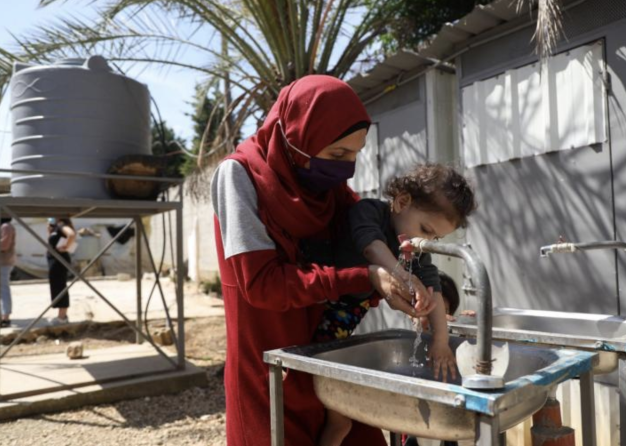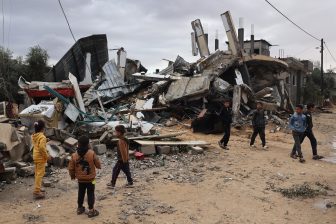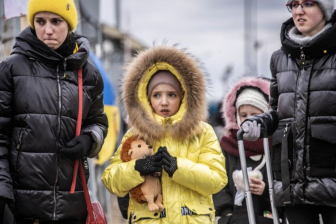
Crisis in Lebanon ‘threatening children’s health’
The ripple effects of the global economic situation – with heightened prices and increased inflation – are exacerbating Lebanon’s calamitous crisis, with grave consequences for children’s health, said children’s charity UNICEF in a report marking World Immunization Week (WIW).
It says that this will cause more disruptions in the health sector already beset by a major exodus of medical professionals, a hiring freeze by health facilities and limitations on imports of medications and equipment that have seriously affected the quality of healthcare for women and children.
A worsening health crisis for children points out the critical drop in vaccination rates has left children vulnerable to potentially deadly diseases such as measles, diphtheria and pneumonia. Routine vaccination of children has dropped by 31 per cent when rates already were worryingly low, creating a large pool of unprotected children vulnerable to disease and its impact.
More families than ever before, says the report, now rely on what is a poorly-funded public health system, including those had previously relied on the private sector for their routine vaccinations.
‘Routine vaccination of children has dropped 31 per cent’
Keeping the cold chain for vaccines running is critical and the rising fuel prices pose new threats to essential services, such as vaccine delivery, despite efforts to rapidly increase the use of solar power.
Ettie Higgins, UNICEF’s Lebanon Representative, said: “With 80 per cent of the population living in poverty, many families cannot even afford the cost of transportation to take their children to a health care centre, and many are no longer able to provide the food and nutrition their children need to survive and thrive.”
Lebanon’s National Nutrition Survey 2021 shows that the key nutritional indicators for young children are poor from the very beginning of life and worsen over time. More than 90 per cent of children do not meet the standards for minimum meal frequency, dietary diversity or acceptable diet during the crucial period for growth and development up to age 2.
‘Concerted action is critical to prioritise children’s health’
Support is critically needed to prevent a further deterioration of the health and nutrition situation and protect the most vulnerable women and children as Lebanon reels from an economic meltdown, COVID-19, the aftermath of the 2020 Beirut Port explosions, and now, the global economic situation.
“With the compound crisis showing no sign of abating, concerted action is critical to prioritise children’s health. Lebanon cannot afford children to be in poor health and nutritionally deprived”, said Higgins. “UNICEF reinforces its call to the Lebanese government and all stakeholders to scale up efforts to vaccinate all children against vaccine-preventable diseases and to improve the nutritional well-being of children and women.
Click here for more information on World Immunization Week.




